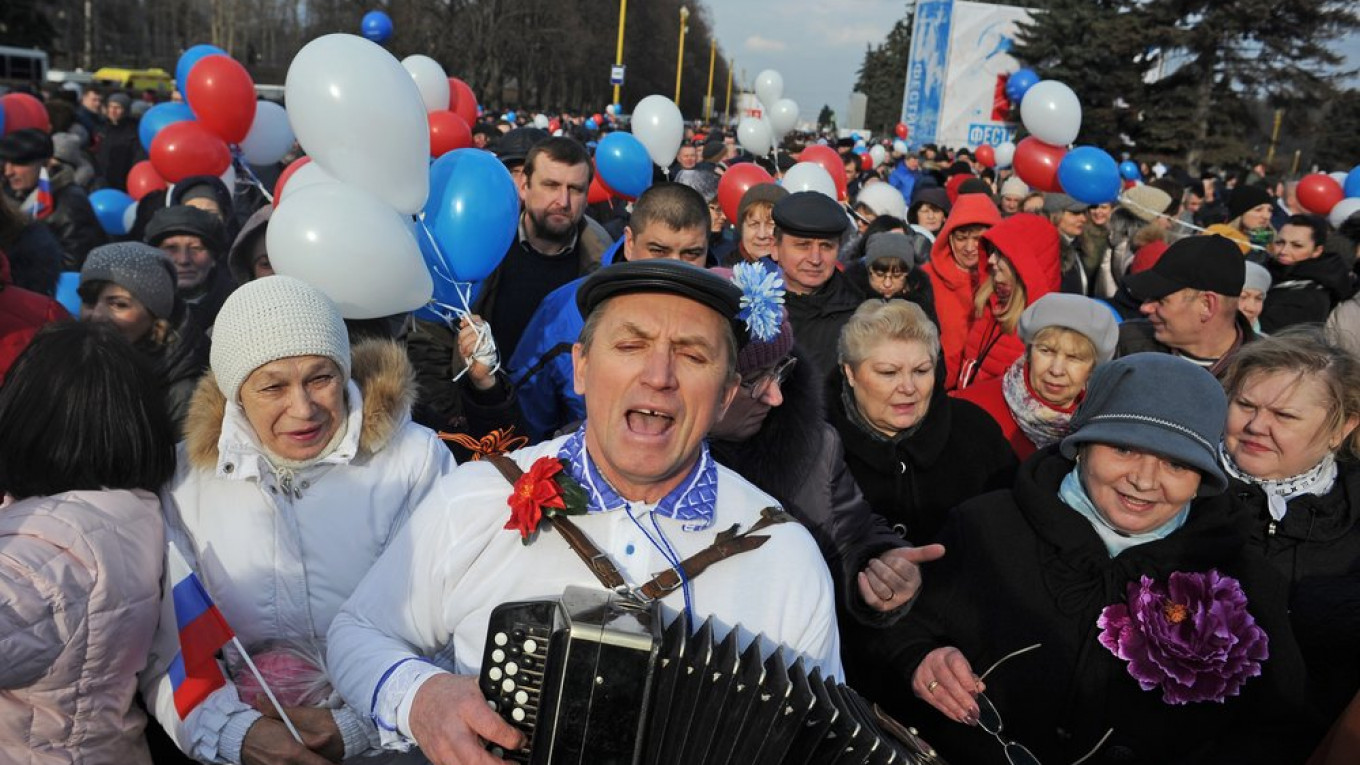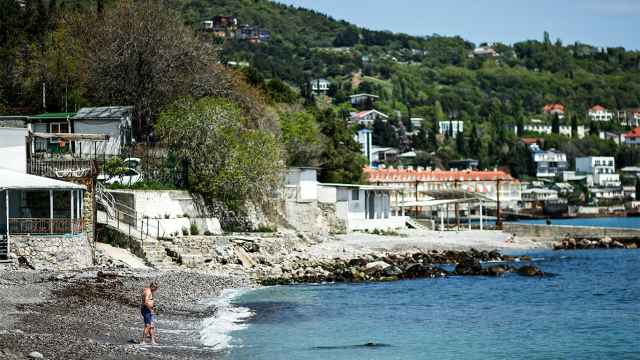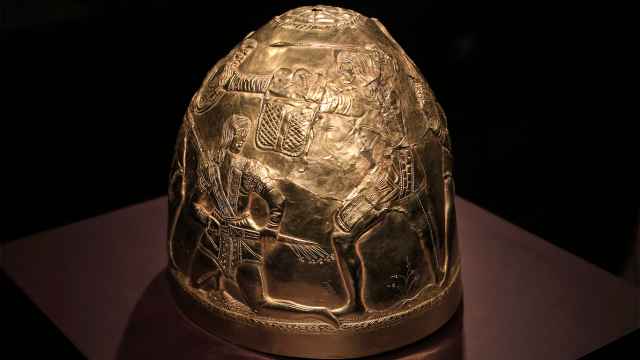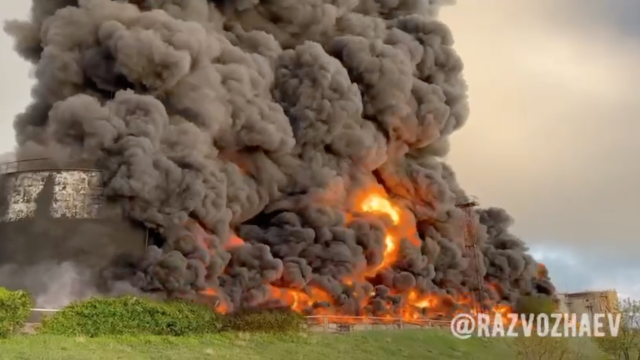The five years that have passed since Russia's annexation of Crimea have turned out to be an important period in the history of modern Russia.
It is widely accepted that this period has been characterized by a particular social mindset. Much has been said about the so-called “Crimea euphoria” or the “Crimea mobilization,” and commentators have frequently been premature in claiming the effects have worn off.
It was only at the end of last summer, when there was widespread discontent with the authorities and with Putin personally over the adoption of a law on increasing the retirement age for Russians, that observers finally become convinced that the “post-Crimea syndrome” had come to an end.
We can no longer see the signs of mass euphoria or enthusiasm that characterized the first few months after the seizure of Crimea.
The bitter arguments between supporters and critics of the annexation have also faded away.
Occasionally, events that are linked one way or another to affairs on the peninsula, such as Russian warships firing on Ukrainian boats in the Kerch Strait, make the headlines, but on the whole, the fate of Crimea has ceased to be a topic of concern for Russian public opinion.
Over the last five years, there has been no other indicator of public opinion and mood that has shown this kind of consistency.
Since March 2014, when the takeover of Crimea was essentially completed, the Levada Center pollster has regularly posed Russians the question: “Do you support the accession of Crimea to Russia?”
The proportion of those who answer “yes” has never sunk below 83 percent (and never risen above 88 percent). Over the last five years, there has been no other indicator of public opinion and mood that has shown this kind of consistency. The lack of public division in opinions on Crimea is very telling.
There is no question that approval of Putin’s actions as president, which for three years remained almost equally high at over 80 percent, was linked to the events of 2014. After the annexation of Crimea and the West’s negative reaction, more than 70 percent of Russians declared themselves ill-disposed toward the United States.
Approval of the annexation, approval of the man who was credited with leading this operation, and the negative reaction to American condemnation combined to form, at the time, a single mindset in the mass consciousness of Russians.
But Putin’s approval rating fluctuated, then began to decline, and in the summer of 2019, it fell sharply to around 65 percent.
Attitudes toward the U.S. and the West also slightly improved. Meanwhile, support for the annexation of Crimea remained as high as ever. So it is clear, these numbers are an indicator of a kind of deeper and more stable process in society.
It can be argued that the annexation of Crimea was the conclusion to a phase of uncertainty in Russian history and that the country has now entered a kind of stationary state.
If we imagine that countries are entities that each occupy their own niche in the world, then after the collapse of the U.S.S.R. the majority of its constituent republics found themselves a niche — some a more western one, others a more eastern one. Russia has historically oscillated between East and West, and has been influenced by both.
The experiment in building a democratic society with a free economy, begun in the 1990s, was first scaled down and then ended completely.
This was symbolically emphasized by the transfer of power from the “democrat” Yeltsin to a representative of the opposite end of the political scale: Putin. But Russia, having halted the processes of its democratic development at the beginning of the 21st century, continued out of inertia to seek a political alliance with the West for several years.
Some argue that the West was not sufficiently welcoming and pushed Russia away. But such an alliance would hardly have been sturdy, insofar as the prospects of reconciling the inner fabric of Russian society with the societies of the free world no longer existed.
For better or for worse, Russia did not become a member of NATO or the European Union: it remained instead in limbo. The Kremlin began to encourage nostalgia for the Soviet Union and the standing in the world that Stalin had brought it.
In 2008 the Russian leadership chose to take an extremely risky step. Russia carried out military operations on foreign soil and fought against Georgia, once one of the “fraternal republics” of the U.S.S.R., provoking the opprobrium of most of the world. Yet Russian society supported this step that the Kremlin had taken: Putin’s rating rose to almost 90 percent for the very first time.
Why? The research we did at the time showed that two factors were important.
The first was the idea that since the Americans had armed and trained the Georgian army, a military confrontation with it was something akin to playing at a Third World War, and while the resulting victory may have been something of a game, it was a victory over the U.S. in this war.
The second factor was the readiness that Russia had demonstrated to refuse to comply with either the law or the will of the global community. According to Russians, a global power is permitted to (and should) behave this way.
In spring 2014 the Russian leadership seized Crimea, repeating this maneuver, and got exactly the same result. Once again, Putin’s rating leaped to almost 90 percent.
The enduring support of Russian society for the annexation of Crimea now means that the country’s probing and searching for a place in the world is over.
Russia has found its niche, and this suits Russians. If it is a position of “we stand alone, everyone opposes us,” then we are a heroic minority.
If it is a position of “we stand against the West, but China and India are with us,” then we are in a victorious majority. In either case, it is cause for self-esteem. And for those who still pine for the great power of the Soviet Union, this is something of which they are in great need.
A Message from The Moscow Times:
Dear readers,
We are facing unprecedented challenges. Russia's Prosecutor General's Office has designated The Moscow Times as an "undesirable" organization, criminalizing our work and putting our staff at risk of prosecution. This follows our earlier unjust labeling as a "foreign agent."
These actions are direct attempts to silence independent journalism in Russia. The authorities claim our work "discredits the decisions of the Russian leadership." We see things differently: we strive to provide accurate, unbiased reporting on Russia.
We, the journalists of The Moscow Times, refuse to be silenced. But to continue our work, we need your help.
Your support, no matter how small, makes a world of difference. If you can, please support us monthly starting from just $2. It's quick to set up, and every contribution makes a significant impact.
By supporting The Moscow Times, you're defending open, independent journalism in the face of repression. Thank you for standing with us.
Remind me later.








